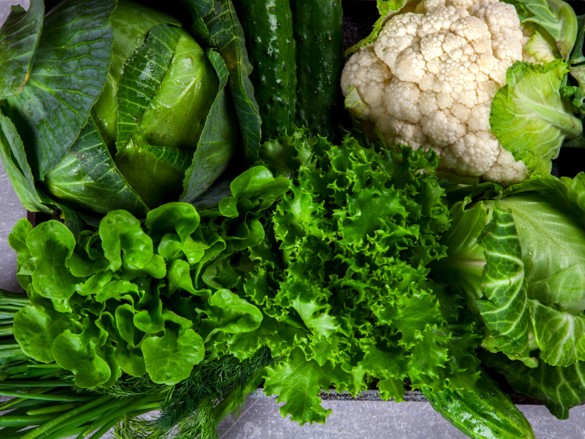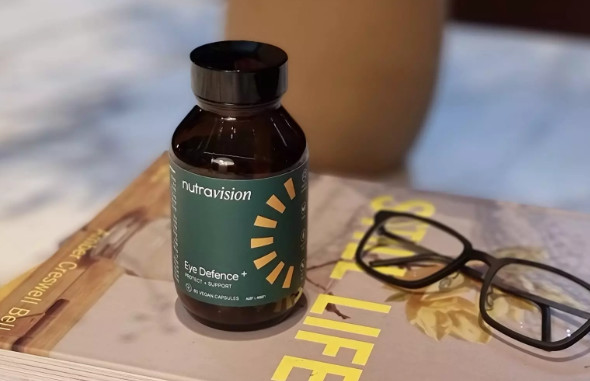
Miracle natural cure for glaucoma?
The fact that you are reading this post means that you already know what glaucoma is, and are you worried about the impact of glaucoma on your vision and your independence.
You hope to find information about a miracle natural cure or remedy for glaucoma.
And you wonder if there is any truth to claims of ‘I restored my vision by naturally reversing my glaucoma blindness… without surgery or medications!’
Most of my glaucoma patients do.
Unfortunately, the reality is that there is no miracle cure or remedy for glaucoma.
Just as we are not able to bring the dead back to life, we are not able to restore vision from glaucoma blindness by bringing dead retinal ganglion cells back to life.
But what I will share in this post are seven natural glaucoma remedies that target seven key glaucoma risks. And by targeting all these seven key risks naturally through lifestyle changes and diet, you reduce your odds of losing vision from glaucoma.
It will require constant effort and determination, but the good news is that it can be done.
But before we get into these natural glaucoma remedies, let’s have a quick refresher about glaucoma treatment first.
How do you treat glaucoma and prevent blindness?
Your eye specialist will no doubt have emphasized that the only proven way to treat glaucoma and prevent vision loss is by reducing eye pressure through eye drops, laser or surgery.
While high eye pressure is the most important risk factor for glaucoma blindness, it is not the only risk factor.
How else do you explain glaucoma that continues to progress and worsen despite well-controlled eye pressures? I see this happen myself every day, in many of my glaucoma patients.
So if you want to give your eyes the best chance of avoiding glaucoma blindness, you must address not just your eye pressure, but also these other risk factors too.
In this post, I will also discuss nutritional supplements for glaucoma neuroprotection including Nutravision, which in my clinical experience is the most advanced nutrient capsule available worldwide protect against glaucoma damage.
More on Nutravision later.
The 7 key natural glaucoma remedies:
1. Regular monitoring
Ok, technically this is not a remedy, but I cannot emphasize the importance of regular monitoring enough.
I published research in 2007 confirming that the majority of people diagnosed with glaucoma maintain useful vision for the rest of their lives. Most people who go blind from glaucoma do so because their glaucoma was detected too late or because they were not able to access regular monitoring.
So make sure you get your eyes checked by your optometrist or your ophthalmologist, ideally every 1 to 2 years. Do this even more frequently if you are at risk of glaucoma, such as if you have a family history or use steroid medications regularly or have diabetes.
Monitoring visits should include intraocular pressure measurements, optic disc evaluation, visual field testing and OCT scans. Regular, adequate monitoring means that early signs of glaucoma damage or progression can be treated before any significant sight loss occur.
Key risk: Inadequate monitoring and late detection
2. Stop cigarette smoking (and vaping)
We all know of the damage cigarette smoke can do to our lungs and heart. But are you aware that cigarette smoke can also inflict significant damage to your eyes?
Cigarette smoke and vapour from vapes contains many harmful chemicals, such as tobacco-specific N-nitrosamines (TSNAs), benzene, pesticides, arsenic, cadmium and cyanide, that cause serious oxidative damage to the eye and optic nerve.
Smoking not only leads to higher eye pressure and increased risk of glaucoma, but also worsens other eye conditions such as age-related macular degeneration, uveitis, and retinal vein occlusions – all of which are sight-threatening diseases that you really don’t want to get.
Key risk: Cigarette smoke
3. Eat a healthy and balanced diet
You are what you eat. You also see what you eat, both literally and figuratively.
Good nutrition and a healthy balanced diet are important to maintain overall eye health, including for glaucoma. Those with lower intake of fruits and vegetables are more likely to develop glaucoma.
Your diet should contain plenty of natural antioxidants, such as vitamin A (carrots, apricots, papayas), vitamin C (berries, citrus fruits, tomatoes), vitamin E (avocados, green leafy vegetables, fish) and zinc (whole bran, eggs, peanuts).

So the healthy eating habits for glaucoma are:
- Eat plenty of naturally nitrate-rich foods and leafy green vegetables (collard greens, kale, lettuce, and others) to reduce your risk by over 20% and slash your odds of glaucoma by half.
- Eat 3 or more servings of fruit per day so that you are 79% less likely to have glaucoma.
- And please avoid highly processed and sugary foods – higher intake of processed and sugary foods increases your glaucoma risk threefold!.
Key risk: Inadequate and unhealthy diet
4. Regular exercise
Exercise improves blood circulation and can reduce the risk of glaucoma visual field loss. Just by walking 5,000 steps, performing an extra 2.6 hours of non-sedentary activity, or exercising for 120 minutes daily at a moderate-to-vigorous level, you can reduce your average rate of visual field loss by 10%.
Doing aerobic exercise three times a week for at least 30 to 45 minutes each time can lower your eye pressure by 20% on average.
But while lack of exercise is unhealthy for your eyes, not all exercise is good for you either. Overly vigorous and high-impact exercises can elevate eye pressure due to exuberant pigment release from the iris.
Strength and resistance training could lead to persistent elevation of eye pressure as a result of raised intrathoracic pressure. The evidence on this is mixed, but exercises that give rise to exertion such as push ups, crunches, and bench presses can all cause the eye pressure to increase.
While doing such exercises, it is crucial to continue to slowly exhale during periods of maximum exertion. This helps to avoid the Valsalva maneuver, where there is forceful exhalation with a closed mouth and nose, as this can dramatically increase eye pressure.
Head-down and inversion exercises can also elevate eye pressure significantly, and should be avoided. I recently tested this on a patient who enjoyed pole exercises, which involve inversion. Her usual eye pressure of 10 mmHg skyrocketed to 30 mmHg within 20 seconds of being head down!
Key risk: Lack of exercise and strength / inversion exercises
5. Reduce the use of steroid medications
Steroids are very commonly prescribed in all medical and surgical specialties. But did you know that steroids are the commonest medication-related cause of glaucoma and cataract?
This is because steroids can elevate eye pressure (this is called a steroid response). Steroid-induced glaucoma is one of the more difficult types of glaucoma to treat, and often require surgery.
If you are taking steroid medications and are concerned about your risk of glaucoma, it is a good idea discuss with your family doctor or treating specialist about other medical alternatives to steroids.
Key risk: Steroid medications
6. Mindfulness meditation + stress management
Where do I start with stress? Unhealthy for your body, and now increasingly recognized as being unhealthy for your eyes too.
Stress causes increased circulating stress hormones in the body, which will elevate eye pressure and blood pressure. Some scientists now consider mental stress as a cause of glaucoma that needs to be actively managed.
While it is impossible to have no stress in your life, it is important to have strategies to manage this stress, and one of the best natural ways to do so is through mindfulness meditation.
Practise mindfulness meditation for 45 to 60 minutes every day to reduce eye pressure, decrease stress levels, and improve quality of life. If meditation is not your cup of tea, then 365 breathing where you take slow deep breaths (5 seconds inhalation and 5 seconds exhalation) also helps with eye pressure reduction.
Key risk: Mental stress
7. Glaucoma neuroprotection with natural supplements and vitamins
Warning: Currently, there is no clinical guideline or medical consensus on the role of neuroprotection in glaucoma management among glaucoma specialists worldwide.
My professional position is that glaucoma neuroprotection, through highly bioavailable vitamins and natural botanical extracts in the form of supplements, is an essential part of natural glaucoma care that complements the conventional medical treatments you are receiving.
Why? Because glaucoma progression can still occur despite well controlled eye pressures.
And why is this the case? Because while eye pressure has been treated, the other important key biocellular mechanisms of eye aging that increase glaucoma risk have been neglected.
The retinal ganglion cells and optic nerve will continually suffer stress and damage from glaucoma unless adequately supported with specific glaucoma neuroprotectant nutrients.
Key risk: Insufficient glaucoma neuroprotection
So which are the best glaucoma vitamins and natural botanical extracts that I recommend, based on current available clinical evidence?
7a) Nutravision (Australia)
(Disclaimer: I am part of the team of leading Australian clinicians, scientists and naturopaths that formulated and developed Nutravision)
In my admittedly biased opinion, if you are going to take a natural supplement to proactively protect and safeguard your eyes against glaucoma and aging, then Nutravision will do all this and more.
This is because Nutravision has been specifically formulated to effectively target all the ten key biocellular mechanisms of eye aging that increase risk of glaucoma (and macular degeneration).
Which makes Nutravision just about the most complete and synergistic neuroprotection supplement for glaucoma the world has ever seen.
I am very pleased to witness its clinical efficacy in real life, in my patients, every single day. These range from relief from eye soreness to reduction in eye pressure to stabilization and even improvement in visual field test and OCT scan results.
The results with Nutravision have been remarkable and truly unprecedented. And this is why Nutravision is the only natural treatment for glaucoma that I now recommend to my patients to complement their existing therapies.
7b) Vitamins & natural plant extracts
Bilberry anthocyanins
Bilberry and blackcurrant contain anthocyanin flavonoids. These phytonutrients are powerful antioxidants that combat cellular inflammation and enhance ocular blood flow. Take bilberry or blackcurrant fruit extract to help with eye pressure control and limit glaucoma visual field deterioration.

Citicoline (CDP-choline)
Citicoline is a molecule that occurs naturally in the brain and helps with communication between nerve cells. Take citicoline 500 mg daily to slow down glaucoma progression.
Ginkgo biloba leaf
Ginkgo biloba leaf is a popular natural herb that has been used for centuries in Traditional Chinese Medicine. Take ginkgo biloba leaf extract 120 mg daily to enhance ocular microcirculation and perhaps even improve visual field performance.
Note that there is some concern regarding bleeding with ginkgo biloba, but the most rigorous evidence from systematic reviews and meta-analyses have confirmed that ginkgo biloba does not increase bleeding risk.

Nicotinamide (Vitamin B3)
Nicotinamide plays an important role in supporting cell metabolism through NAD+ production. Take nicotinamide on its own or in combination with pyruvate to increase NAD+ levels in the retinal ganglion cells and improve visual function in glaucoma.
Methylcobalamin (Vitamin B12)
Methylcobalamin is a water-soluble B-vitamin which is important for DNA regulation, protection of the neural structures, and nervous system function. Take 1,500 micrograms (or 1.5 mg) oral methylcobalamin daily to stabilize visual field loss from low pressure glaucoma.
Palmitoylethanolamide (PEA)
Palmitoylethanolamide is an endocannabinoid that reduces inflammation and pain. For those already one eye drops, you can take PEA 600 mg daily to help with eye pressure control.
The seven natural glaucoma remedies – final word
Adopting these seven natural glaucoma remedies will significantly reduce your odds of glaucoma and vision loss from glaucoma. But this does not mean you can discontinue your existing glaucoma treatments as prescribed by your eye specialist.
A proactive, combined complementary and medical approach will provide you with the best protection and best care against glaucoma.


